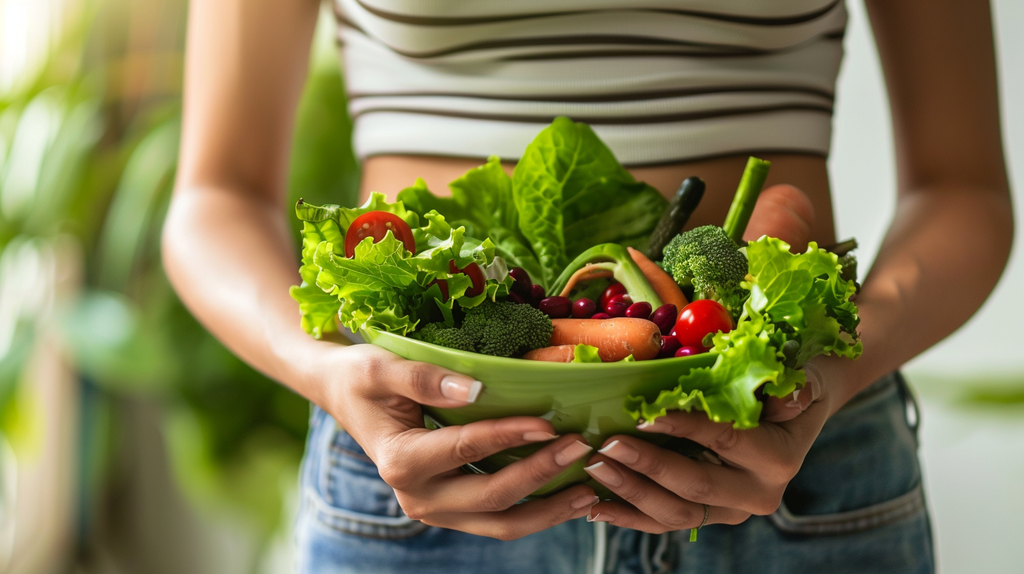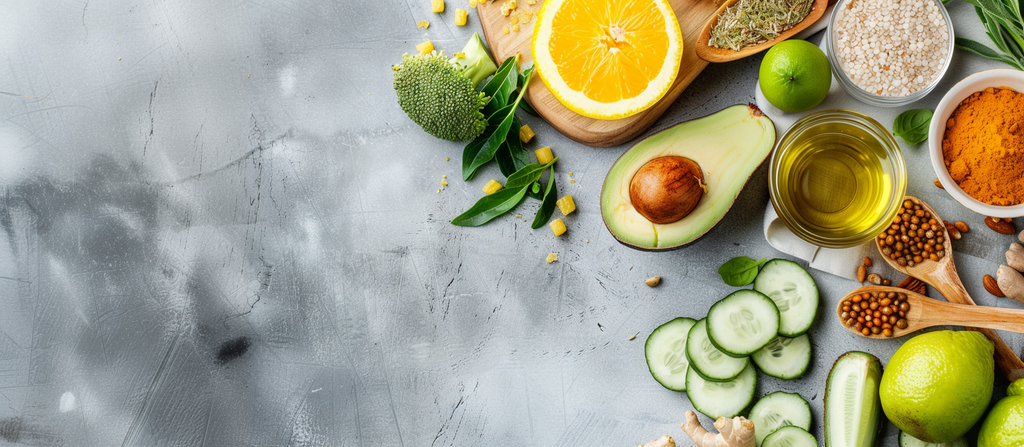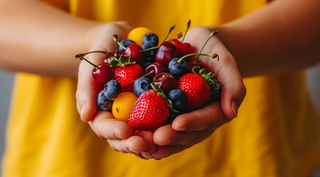Key Takeaways
| What are healthy snacks? | Fruits, vegetables, nuts, seeds, yogurt, hard-boiled eggs, and homemade energy bites are all excellent choices. |
|---|---|
| What nutrients do healthy snacks provide? | Healthy snacks offer a variety of macro and micronutrients, including vitamins, minerals, fiber, protein, and healthy fats. |
| How can I make healthy snacking easy? | Plan your snacks in advance, prep them ahead of time, and involve kids in the process! |
| What are some tips for mindful eating? | Focus on portion control, savor each bite, and avoid distractions while snacking. |

This guide will explore a variety of delicious and nutritious snacks across different food groups, providing a treasure trove of ideas to keep you and your family fueled for fantastic futures!
Fresh Fruits: Nature's Candy
Fresh Fruits are a delightful and easy way to satisfy your sweet tooth while reaping a bounty of health benefits. They are naturally packed with vitamins, minerals, and fiber, making them a best choice for on-the-go snacking. Here are some fantastic options:
- Apples (vitamin C, fiber): Pair with a dollop of nut butter for added protein and healthy fats.
- Berries (antioxidants, vitamin C): Enjoy a handful on their own or toss them into yogurt for a refreshing parfait.
- Bananas (potassium, vitamin B6): Kids love the ease of peeling and eating bananas, making them a perfect lunchbox addition.
- Oranges (vitamin C, folate): These juicy citrus fruits are a great source of vitamin C to support a healthy immune system.

Fresh Vegetables: Crunchy Companions
Fresh vegetables offer a fantastic source of vitamins, minerals, and fiber, promoting gut health and keeping you feeling satisfied.
- Carrot sticks (vitamin A, beta-carotene): Dip them in hummus for a creamy and delicious combination.
- Cherry tomatoes (vitamin C, lycopene): These bite-sized treats are a fun and easy finger food for kids.
- Cucumber slices (vitamin K, hydration): Add a touch of freshness and hydration to your snacking routine.
- Bell pepper strips (vitamin C, vitamin A): Choose a variety of colors for a vibrant and nutritious snack.
Nuts and Seeds: Powerhouse Bites
Nuts and seeds are a concentrated source of protein, healthy fats, fiber, and essential vitamins and minerals. However, due to their calorie density, portion control is key with nuts and seeds. Here are some best options:
- Almonds (vitamin E, magnesium): Enjoy a small handful for a satisfying and nutritious snack.
- Chia seeds (omega-3 fatty acids, fiber): Make a chia pudding with your favorite milk and fruits for a delicious and healthy breakfast or snack.
- Walnuts (omega-3 fatty acids, manganese): These brain-boosting nuts are a great addition to trail mix or yogurt parfaits.
- Sunflower seeds (vitamin E, selenium): Kids will love the fun texture and nutty flavor of sunflower seeds.
Yogurt: A Protein-Packed Delight
Plain yogurt is a fantastic source of calcium and protein, making it a healthy and satisfying snack option. Recipesabound for turning plain yogurt into a flavor explosion! Here are some ideas:
- Top with berries and granola for a fiber and antioxidant boost.
- Mix in a dollop of nut butter and chopped dark chocolate for a decadent and nutritious treat.
-
Make a smoothie with yogurt, frozen fruit, and spinach for a power-packed breakfast on the go.
A Naturopath's Recommendation
Boosting Gut Health: Good gut health is vital for absorption of vitamins and minerals, and likewise - good nutrition can make for a very healthy gut! Fibre rich foods feed your microbiome, which in turn helps reduce inflammation in the gut and support healthy gut wall. Slippery Elm, Aloe Vera Juice and even organic apple cider vinegar and good quality Bone Broth can all help in reducing inflammation in the gut.Eat the Rainbow: Add colour and variety to your meals! Different colours in veggies, herbs and fruits contain unique phytonutrients (plant based nutrients). These phytonutrients can have anti-inflammatory effects, reduce risk of chronic diseases and strengthen the immune system. Look for seasonal fruit and veg and try each week to increase your range of colours with your all meals.
Hard-Boiled Eggs: A Protein Powerhouse
Hard-boiled eggs are a convenient and nutritious snack option, providing a complete protein source and healthy fats. They are also incredibly easy to prepare and store for busy schedules.
Dried Fruit: Natural Snacks
Dried fruit is fruit that has been preserved by removing the water content. This process concentrates the fruit's natural sugars, making it sweet and chewy. Dried fruit is a popular snack, and it's packed with nutrients, fiber, and antioxidants.
Types of dried fruit:
- Dates
- Apricots
- Prunes (dried plums)
- Raisins (dried grapes)
- Cranberries
- Blueberries
- Strawberries
- Mango
- Pineapple
- Papaya
- Kiwi
- Banana
- Apple
- Pears
Benefits of dried fruit:
- Rich in fiber, which supports digestive health
- High in antioxidants, which protect against cell damage
- Good source of essential vitamins and minerals (potassium, iron, calcium)
- Natural sweetener, reducing the need for added sugars
- Supports healthy blood sugar levels
- Convenient and portable snack
When shopping for dried fruit, look for:
- No added sugars or preservatives
- No sulfites (a common preservative)
- Dried fruit with no added oil or coatings
- Variety packs for a mix of flavors and nutrients
Premium KAKADU PLUM Powder Wild Australian Superfood
This native Australian fruit boasts the highest recorded levels of Vitamin C, containing over 100 times the amount found in oranges!
View Now
Whole Grain Crackers
These crackers are considered a healthier option compared to regular crackers made from refined flour. Here's why:
- Higher fiber content: Whole grains contain more fiber, which can help with digestion and satiety.
- More nutrients: Whole grains retain their natural nutrients, including vitamins, minerals, and antioxidants.
- Lower glycemic index: Whole grain crackers are digested more slowly, causing a gradual increase in blood sugar levels.
- Increased satiety: The fiber and protein in whole grain crackers can help keep you fuller for longer.
Homemade Energy Bites: Customize Your Fuel
Homemade energy bites are a fantastic way to create nutritious snacks tailored to your specific needs and preferences. They are easy to make in large batches and perfect for portion control. Here are some recipe ideas to get you started:
-
The Classic: Combine rolled oats, nut butter, honey, chia seeds, and shredded coconut for a satisfying and energizing bite.
-
The Chocolaty Craving: Make a decadent version with rolled oats, cocoa powder, almond butter, dates, and dark chocolate chips.
-
The Berry Blast: Infuse your energy bites with antioxidants by adding rolled oats, almond butter, dried cranberries, blueberries, and a touch of honey.
- The Kid-Approved: Kids will love these fun and colorful bites made with rolled oats, peanut butter, mashed banana, chopped dried fruits, and mini chocolate chips.
Protein-Rich Foods & Snacks (5 options)
- Greek Yogurt: A 6-ounce serving contains 100 calories, 10g protein, 7g carbs, and 0g fat.
- Hard-Boiled Eggs: A large egg contains 78 calories, 6g protein, 0.6g carbs, and 5g fat.
- Cottage Cheese: A cup of cottage cheese contains 110 calories, 28g protein, 5g carbs, and 0g fat.
- Protein Smoothie: A recipe with Greek yogurt, banana, spinach, and almond milk contains approximately 200 calories, 20g protein, 30g carbs, and 10g fat.
- Edamame: A cup of cooked edamame contains 125 calories, 10g protein, 10g carbs, and 2g fat.
Remember: When creating your own recipes, consider incorporating a variety of ingredients to ensure a well-rounded nutritional profile. Here are some additional tips for healthy snacking:
- Plan ahead: Dedicate some time each week to prepping and portioning your snacks. This will help you make healthy choices when hunger strikes.
- Involve kids: Get your kids involved in the snack-making process. This can help them develop healthy eating habits and make them more excited about trying new foods.
- Practice mindful eating: Pay attention to hunger cues and avoid distractions while snacking. Savor each bite and enjoy the experience!
- Portion control is key: Even healthy snacks can be calorie-dense. Use measuring cups and spoons to ensure you're sticking to recommended serving sizes especially when aiming for weight loss.

Beyond the Basics: Unveiling the Science Behind Healthy Snacking
Having explored a variety of delicious and nutritious snack options, let's look into the science behind healthy snacking. Understanding how different foods impact your body can empower you to make informed choices and optimize your well-being.
Fueling for Function: Macronutrients and Micronutrients
Our bodies rely on a balanced intake of macronutrients (carbohydrates, protein, and fat) and micronutrients (vitamins and minerals) to function optimally. Here's how these essential nutrients play a role in healthy snacking:
-
Carbohydrates: Provide readily available energy for the body and brain. Choose complex carbohydrates like fruits, vegetables, and whole grains for sustained energy and fiber intake.
-
Protein: Essential for building and repairing tissues, promoting satiety, and supporting a healthy metabolism. Include protein sources like nuts, seeds, yogurt, hard-boiled eggs, or lean meats in your snacks.
-
Healthy Fats: Play a crucial role in hormone regulation, brain function, and cell health. Opt for healthy fats from sources like avocados, nuts, seeds, and olive oil.
-
Micronutrients: Act as the building blocks for various bodily processes. Fruits, vegetables, nuts, and seeds are excellent sources of vitamins and minerals that support overall health and immunity.
The Glycemic Index and Blood Sugar Balance
The glycemic index (GI) is a ranking system that measures how quickly a carbohydrate-containing food raises blood sugar levels. Spikes in blood sugar can lead to energy crashes, cravings, and hinder weight management efforts. Healthy snacks with a low GI, such as fruits with nuts or yogurt with berries, promote sustained energy and satiety.
Fiber's Fantastic Role
Fiber is a type of carbohydrate that our bodies cannot fully digest. It offers a plethora of benefits, including promoting gut health, regulating blood sugar levels, and aiding in weight loss management. Fruits, vegetables, nuts, seeds, and whole grains are all excellent sources of fiber.
Naturopathic Expertise: Optimizing Your Snacking Habits
As a naturopath, I take a holistic approach to health, considering the unique needs and imbalances of each individual. By consulting with a naturopath, you can gain valuable insights into:
-
Identifying Food Sensitivities: Certain food sensitivities can trigger digestive issues, inflammation, and fatigue. A naturopath can help identify potential food sensitivities and recommend alternative healthy snack options.
-
Balancing Blood Sugar: For individuals struggling with blood sugar imbalances, a naturopath can create a personalized snacking plan that promotes stable energy levels and reduces cravings.
-
Dietary Needs for Specific Conditions: Naturopaths can tailor snack recommendations to address specific health concerns, such as digestive issues, hormonal imbalances, or weight management goals.
Empowering You with Knowledge
By understanding the science behind healthy snacking and the potential benefits of a naturopathic approach, you are well-equipped to make informed choices about your dietary habits and weight loss goals. Remember, incorporating a variety of nutritious snacks throughout the day can fuel your body and mind for optimal health, increased energy and well-being. If you're looking for personalized guidance and a plan that caters to your specific needs, consider scheduling a consultation with a naturopath at our clinic. We are dedicated to partnering with you on your journey towards a healthier and happier future!
By following these tips and incorporating the delicious and nutritious snack options outlined above, you can fuel your body and mind for a fantastic future and reduce cravings for unhealthy snacks! Remember, consulting with a qualified naturopath can provide personalized guidance on creating a healthy and balanced snacking routine for you and your family.









